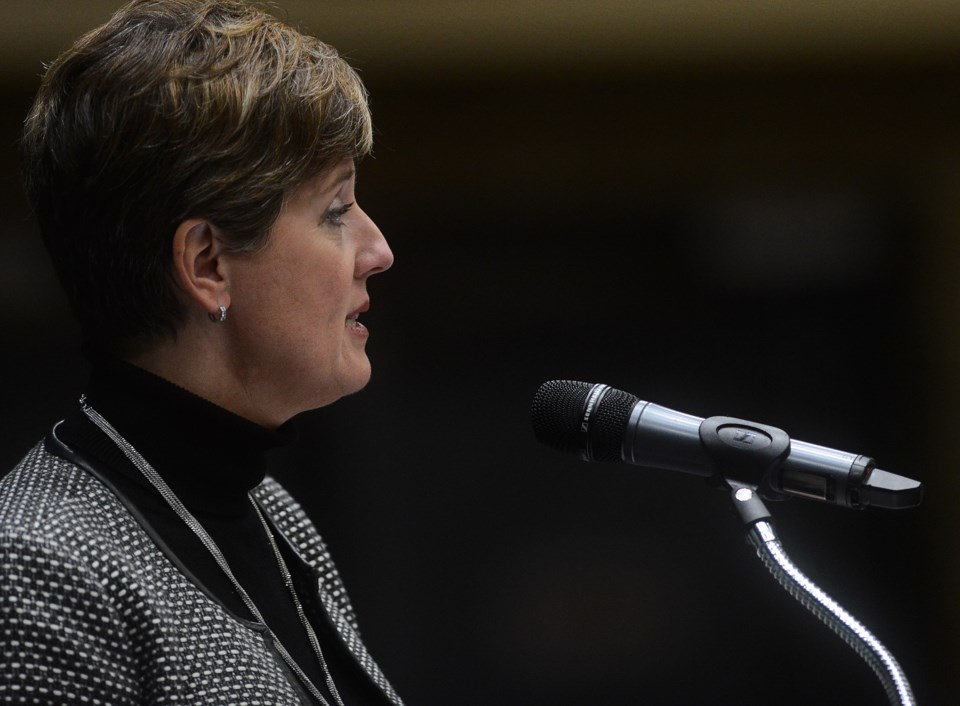Canada will no longer engage in gender-blind development projects around the world, the federal Minister of International Development and La Francophonie told an audience in Guelph Monday night.
Marie-Claude Bibeau visited Guelph to deliver the Winegard Lecture on International Development to an audience of roughly 200 people at the University of Guelph.
She said new policies ensure gender equality is part of any funding of international development.
“All of our projects need to integrate gender equality. This means no more gender-blind projects or initiatives,” Bibeau said.
“To receive funding, our partners must now consult women locally, to include their needs and priorities in the design of potential projects.
“Partners must involve local women in the decision making and ensure that projects respond to women’s specific needs and help to strengthen women’s rights.”
The goal, Bibeau said, is always to end poverty and inequality. Those two things influence all of the choices Canada makes in its foreign policy, its trade policy and its international assistance policies.
“They are all policies that focus on empowering women … we must involve women every step of the way,” the minister said.
Bibeau said 15 per cent of international development projects are now aimed directly at gender transformative projects that directly directly target women’s empowerment and gender equality.
“This is a big change from before, when only 3 per cent of our funding supported projects” targeted the same, and roughly 30 per cent of projects gave no consideration to gender equality at all.
During a question and answer period following her roughly 30 minute talk, a student raised the question of concerns with what happens beyond the policy and how getting women into the workforce and making them part of the policy discussion, doesn’t necessarily address the cultural issue that can still reinforce that inequality.
“I have concerns with assuming or believing that getting women into the workforce will necessarily bring up their rights,” the student said.
“What do their rights look like in the workplace compared to men? What does it look like when they come home from that job? Are the men in the family threatened that they’re breaking cultural norms and taking the role of the breadwinner? Do they have the power to use the resources they make in their job? We find that women come home but the men in their family still has control over the assets and resources,” the student said.
How, she asked, do we address that culturally embedded element?
Bibeau said that various experts in that area had input into the country’s new policy.
“We really came to the conclusion, with evidence to support it, that when we empower women, it makes a difference in the life of the whole community,” Bibeau responded.
She said working with local organizations is key because local women know their needs and their priorities and the best way to make change in their communities.
“I’m profoundly convinced from evidence and all the descriptions I’ve had in the field, that when you give a woman the capacity to improve her live, it will improve the life of her children, of her family. It gets the ball rolling,” the minister said.
Not all the attention in the lecture was on overseas gender equality.
“We know that we still have significant work to do in Canada,” she said, “particularly in the context of our reconciliation projects with indigenous peoples, to fully uphold their right, to give them access to the services they need and to ensure justice for the hundreds of missing and murdered indigenous women and girls.”
